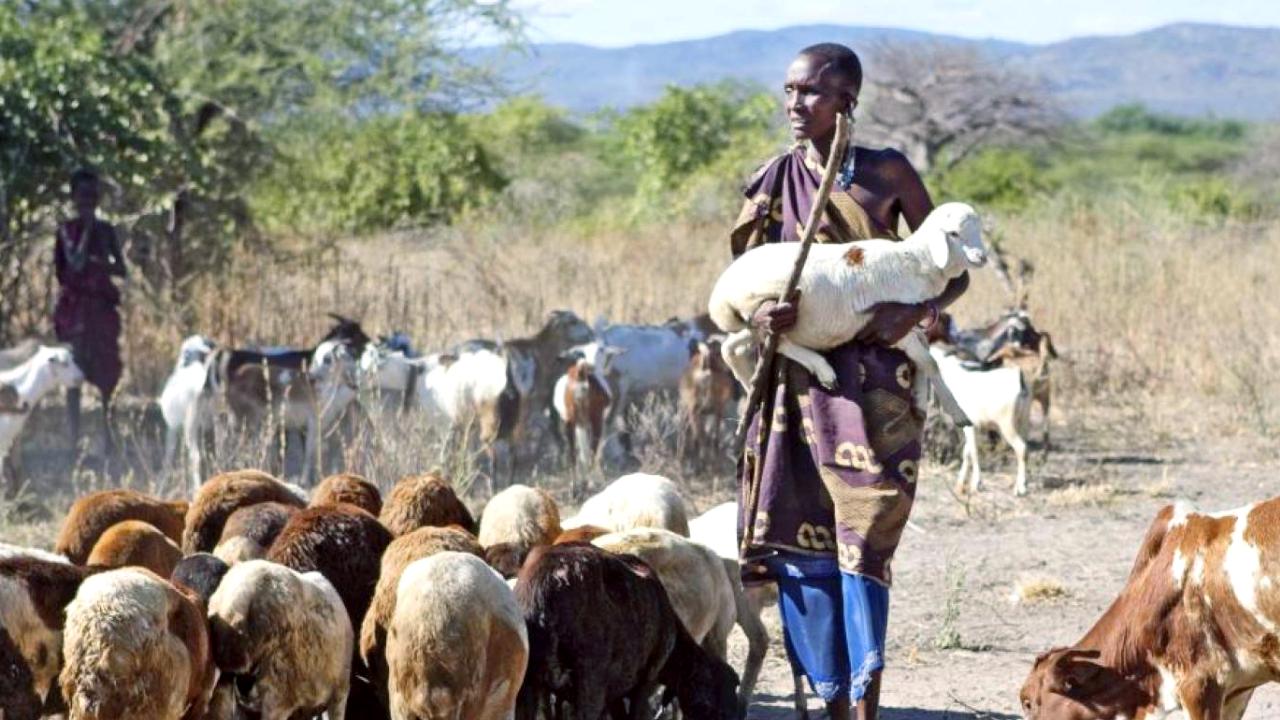
UC Davis Researchers Awarded $28M to Combat Rift Valley Fever
One Health Institute to Lead Human Vaccine Clinical Trial Against Deadly Virus
Researchers at the University of California, Davis, One Health Institute, or OHI, have been awarded $28 million to lead a novel human vaccine trial against Rift Valley fever virus in Africa.
The project, funded by the Coalition for Epidemic Preparedness Innovations, or CEPI, and the European Union’s Horizon Europe program, aims to work with partners in African countries affected by the virus to assess the safety and immune response of the vaccine in people most at risk.
A disease with devastating impact
Rift Valley fever, or RVF, can cause a severe viral hemorrhagic fever and other disease syndromes that affect both people and domesticated livestock animals. Large-scale outbreaks are often linked to heavy rainfall and flooding when the virus spreads to people either through mosquito bites, or contact with infected livestock and virus-contaminated meat and fluids.
In humans, the majority of infections lead to a mild to moderate illness. However, in some cases RVF is a much more severe disease with symptoms ranging from joint and muscle pain, vision loss and blindness, liver and neurological damage and hemorrhagic fever. In 30-50% of these severe cases the disease can be fatal.
The disease is most severe in livestock such as sheep, cattle and goats. A classic sign of RVF outbreaks is the sudden death of large numbers of pregnant animals, and mortality and illness in young animals. Infection during pregnancy leads to so called “abortion storms” with spontaneous loss or developmental abnormalities that can affect up to 90% of pregnant animals.
These losses are especially impactful across rural Africa, where in Tanzania more than 30% of households depend on livestock. Although animal vaccines are available, their use is not widespread, and RVF outbreaks continue to decimate family livelihoods through not only direct human health impacts, but also the large-scale loss of livestock, food products and income.
“People who have the least to lose, often lose the most,” said principal investigator Brian Bird, who directs the OHI Laboratory at the UC Davis School of Veterinary Medicine. “Despite decades of devastating outbreaks across Africa, we don’t yet have an available human vaccine. Our project hopes to fill this vaccine gap, and using a One Health approach — considering human, animal, climate and ecosystem connectivity — provide a framework for integrated strategies to control this deadly disease.”
A collaboration rooted in East Africa
Bird first witnessed the impacts of RVF during a massive regional outbreak in 2006-2007 during his doctoral studies while he was part of the U.S. Centers for Disease Control and Prevention, or CDC, team supporting efforts of Kenya and Tanzania to stop that outbreak. Soon after, he and a core group of CDC scientists set out to develop concepts for improved vaccines capable of stopping RVF in humans and animals. The leading vaccine design from those initial research trials (called DDVax) is now being advanced by the UC Davis-led team as part of this CEPI-funded project.
Bird is deeply committed to building strong partnerships across Africa and globally to support scientific research and training. The UC Davis team has joined with long-term collaborators, including the Ifakara Health Institute in Tanzania, to conduct the human clinical trial in a country directly impacted by the disease.
“RVF outbreaks in Africa cause significant health and economic impact,” said Dr. Ally Olotu, head of interventions and clinical trials at Ifakara Health Institute. “An effective vaccine for humans would be a game-changer in public health efforts to reduce health impact in humans and would become an essential component of a One Health approach to tackle the disease.”
Additional consortium collaborators include Colorado State University, University of Pittsburgh and UC Davis Health.
The aim of the team is to take DDVax through Phase I and Phase II trials to generate crucial data about the safety and ability to generate an immune response in people most at risk of RVF infection, and conduct disease surveillance studies to understand RVF impacts across Africa. The UC Davis-led trials, once regulatory approvals are obtained, are expected to begin in 2024.
“CEPI is pioneering in their aim to compress the time it takes to develop safe, effective vaccines against future epidemics,” said Mark Stetter, dean of the UC Davis School of Veterinary Medicine. “They can envision a world where it is possible to disrupt and prevent the devastating health and economic consequences of diseases like Rift Valley fever. We’re honored to partner with them on this One Health approach that has the potential to set a new paradigm for zoonotic disease vaccine development around the world.”
Media Resources
Media Contacts:
- Brian Bird, One Health Institute, bhbird@ucdavis.edu
- Trina Wood, UC Davis School of Veterinary Medicine, 530-400-0857, tjwood@ucdavis.edu
- Emily Dooley, UC Davis News and Media Relations, 530-650-6807, ecdooley@ucdavis.edu
About UC Davis One Health Institute
